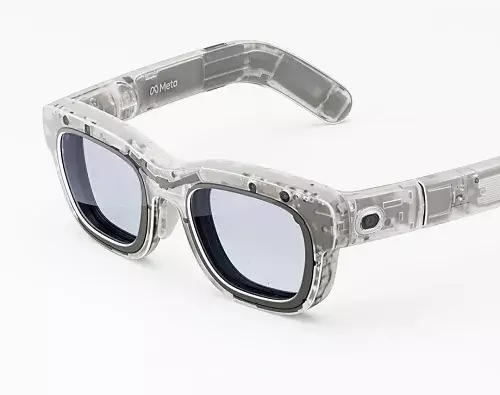In a move that could redefine how we integrate technology into our daily lives, Meta has recently unveiled further details about its Orion augmented reality (AR) glasses. Despite a consumer launch not slated until 2027, the company is clearly committed to pioneering advancements that will make this device a staple of modern computing. Through technical insights shared on Threads, Meta aims to showcase not only the innovative potential of these glasses but also the challenges it faces on the path to successful adoption. As technology rapidly evolves, the push to create fashionable, lightweight AR wearables creates an intriguing narrative that raises anticipation and skepticism alike.
The Design Dilemma: Balancing Aesthetics and Functionality
One of the more notable points in Meta’s introduction of the Orion AR glasses pertains to their design elements. The challenge lies in crafting a device that doesn’t just serve advanced technological functions but also appeals to consumer aesthetics. The addition of a “puck” for supplementary computing and battery power reflects a notable strategy: slim down the glasses themselves while enhancing performance. This directly contrasts with historical AR devices, which often leaned towards bulkiness, deterring everyday use. Meta’s Reality Labs has positioned itself at the forefront of this paradigm shift, acknowledging that for AR to become mainstream, the product must seamlessly blend into the fabric of daily attire.
Nevertheless, the current iteration of the Orion glasses still retains that chunky look. This raises questions about whether consumers will embrace a product that feels more like a gadget than an accessory. Consumers today are flooded with choices that prioritize both functionality and fashion—think of the success of smart glasses like Ray-Ban’s models. Meta aims to replicate this success with the Orion by making technology not just useful but desirable. However, the question remains: can they truly strike that balance?
Economic Accessibility: Aiming for a Mobile Price Point
Another key aspect of Meta’s strategy involves pricing. Unlike Apple’s VisionPro, available at a staggering $3,499, Meta seems determined to offer the Orion AR glasses at a price comparable to that of modern smartphones. CEO Mark Zuckerberg’s critical stance on Apple’s pricing model underlines a fundamental philosophy: for AR technology to successfully penetrate the market, it must be accessible to the masses. This democratization of technology is vital in a landscape often defined by exclusive high-end gadgets.
However, achieving this affordability isn’t without its complexities. The ongoing U.S. trade tensions, particularly those stemming from the Trump Administration, complicate the sourcing of components, most of which are obtained from international markets. Zuckerberg’s vision makes sense on a theoretical level, yet practical hurdles could impede these ambitions. Balancing production costs against potential revenue from auxiliary features, ads, and subscriptions presents a multifaceted challenge that will require strategic foresight.
The Vision Beyond Technology: A New Era of Connectivity
Meta is clearly positioning the Orion AR glasses as a vital connector for future generations. Zuckerberg envisions a world where AR surpasses mobile phones as the primary interface for interaction and connectivity. While this could be seen as an overzealous claim from an industry titan, the prospect is indeed tantalizing. Imagine a world where information overlays in real-time enhance our physical surroundings—transforming mundane interactions into rich, immersive experiences.
Yet, this grand vision demands rigorous technological maturity. Meta must prioritize not just the glasses’ features—such as AI integration—but also the broader implications of their use. Privacy concerns, ethical considerations, and societal impacts require careful navigation to prevent backlash that could hinder the adoption of this innovative accessory.
As Meta pushes the boundaries of reality and technology, the potential for Orbital Orion AR glasses to disrupt our understanding of connection is monumental. Their commitment to design, accessibility, and functionality posits them not just as another gadget but as a transformative tool that could reshape our interactions in a digital future. The coming years will undoubtedly reveal if Meta can indeed realize this ambitious vision and bring forth a new revolution in how we experience the world through augmented lenses.


Leave a Reply